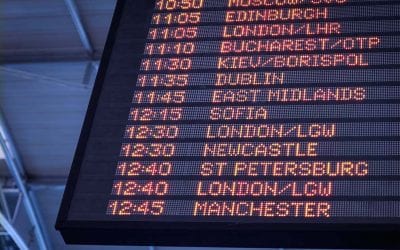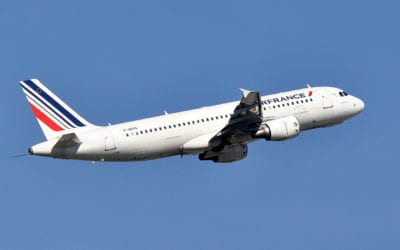The FAA bill is the legislation that more or less sets the direction of regulation, development and operation of the national airspace. This is the flying version of the highway bill. The air traffic controllers fit under this bill. Airline regulation broadly fits within the legislation. Airport funding in many ways is influenced by the bill, especially funding of construction projects.
Travelers United has been working with Congress to try and shape the upcoming bill.
So far, in the House version of the bill, there are excellent consumer protections already in place that should also be reflected in the Senate version. Passengers can expect to see:
- An extension of the Advisory Committee for Aviation Consumer Protections through 2022 to focus on consumer issues (Travelers United is pushing to make the committee permanent)
- Baggage fee refunds for any baggage delayed for more than 24 hours
- A new DOT smartphone and tablet app that would allow passengers to see consumer rules and file complaints with DOT about service and safety issues
- A clear explanation of consumer rights to be included on airline sites. (We hope to have this strengthened to require publication of instances when passengers are due compensation for service failures — lost/damaged/delayed baggage, denied boarding or bumping, transatlantic flight delays.)
- A ban on use of cell phones on planes
In the Senate, though the bill has not been written and introduced, there are some consumer issues that seem to be expected.
- A mandate that the FAA create rules for personal space on aircraft to keep airlines from squeezing passengers so closely together on flights in smaller and smaller seats.
- Mandate that FAA airplane evacuation testing be performed using the tight seating found on many of today’s airlines — with only 28-inch seat-pitch.
- A call to require fees to have a relationship to the actual costs of providing the service. This would force airlines to justify a $200 change fee for one leg of a $160 round-trip ticket.
- A call to justify international fuel surcharges and airline surcharges when the price of oil is at its lowest point in decades.
- A mandate to standardize the 24-hour refund rule so that all airlines provide refunds for 24 hours rather than provide a 24-hour grace period prior to purchase. This will make the rule less confusing.
- The creation of an Airline Competition Commission to study the changes in the aviation system and how consolidation has affected airline competition and pricing.
Finally, Travelers United, in the interest of safety, has asked for the creation of a small committee to study the future of unmanned aerial systems. These will begin growing as a third portion of America’s transportation system to be added to the highway systems and the piloted aircraft sector. The committee would include aviation stakeholders together with scientists and academics to look at the future development of unmanned aerial vehicles. Within 15-20 years this new technology will be zipping passengers through our low-altitude airspace like cars in the Jetsons, delivering packages to our doorstep, checking power lines, taking photographs, spraying crops, and working in ways that still have not been imagined.
The country needs a study group to peer into the future and imagine how this new autonomous transportation network will affect states and localities, what form of enforcement will be needed, how new technologies can be developed to keep unmanned and manned aircraft from collisions, and scores of other issues. Without a vision of the future, Congress can only react rather than create rules and institutions that will allow regulation of this rapidly developing technology.
Currently, the FAA bill is encumbered with a massive change in the air traffic control system organization. This new organization, that will require the formation of a nonprofit corporation to control the country’s airspace, is facing many challenges from funding to manpower. Our expectation is that the bill with the air traffic organization elements eliminated will pass quickly before the election.
The Senate version of the bill is coming soon. Then both the House and Senate version will be negotiated into a final bill. Travelers United expects that Congress will extend the current bill for another three months and finish with this by the middle of the summer.
How many of these consumer protections that are being prepared to be added to the FAA bill will find their way into the final version of the bill is anyone’s guess. Some of them are long shots. But, the quiet success of Travelers United’s consumer advocacy efforts is carving out these consumer benefits and amendments and is a first in the FAA bill’s history. And, consumers will come out far ahead after this legislation than they ever had in the past.

Charlie Leocha is the President of Travelers United. He has been working in Washington, DC, for the past 14 years with Congress, the Department of Transportation, and industry stakeholders on travel issues. He was the first consumer representative to the Advisory Committee for Aviation Consumer Protections appointed by the Secretary of Transportation from 2012 through 2018.



